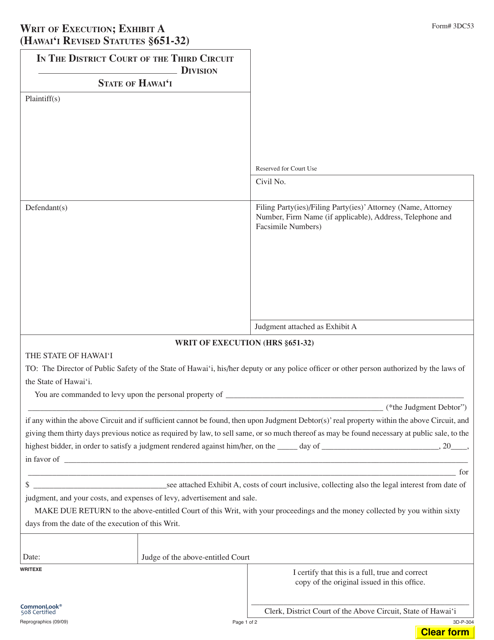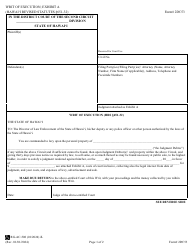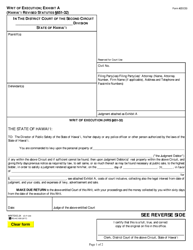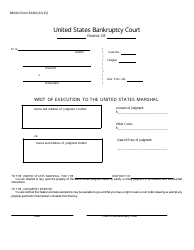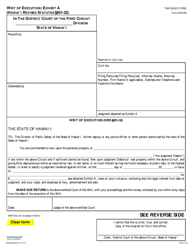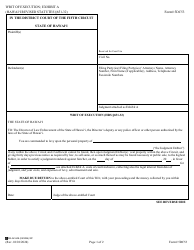Form 3DC53 Exhibit A Writ of Execution - Hawaii
What Is Form 3DC53 Exhibit A?
This is a legal form that was released by the Hawaii District Courts - a government authority operating within Hawaii. As of today, no separate filing guidelines for the form are provided by the issuing department.
FAQ
Q: What is a Writ of Execution?
A: A Writ of Execution is a legal document that allows a sheriff or other law enforcement officer to seize and sell a debtor's property in order to satisfy a judgment debt.
Q: What is the purpose of a Writ of Execution?
A: The purpose of a Writ of Execution is to enforce a judgment and collect the money owed to the creditor.
Q: How is a Writ of Execution obtained?
A: To obtain a Writ of Execution, the creditor must first obtain a judgment from a court and then request the court to issue the writ.
Q: What can be seized and sold under a Writ of Execution?
A: Under a Writ of Execution, any non-exempt property owned by the debtor can be seized and sold, including real estate, vehicles, bank accounts, and personal belongings.
Q: Is there a time limit for using a Writ of Execution?
A: Yes, there is usually a time limit for using a Writ of Execution, which varies by state. In Hawaii, the writ is generally valid for one year.
Q: Can a debtor challenge a Writ of Execution?
A: Yes, a debtor can challenge a Writ of Execution by filing a motion with the court and providing valid reasons why the execution should not proceed.
Q: What happens after the property is sold under a Writ of Execution?
A: After the property is sold, the sale proceeds are used to satisfy the judgment debt. Any remaining funds are returned to the debtor, if applicable.
Q: Can a Writ of Execution be stopped or canceled?
A: In certain circumstances, a Writ of Execution can be stopped or canceled. This may occur if the debtor pays the judgment debt in full or reaches a settlement agreement with the creditor.
Form Details:
- Released on September 1, 2009;
- The latest edition provided by the Hawaii District Courts;
- Easy to use and ready to print;
- Quick to customize;
- Compatible with most PDF-viewing applications;
- Fill out the form in our online filing application.
Download a fillable version of Form 3DC53 Exhibit A by clicking the link below or browse more documents and templates provided by the Hawaii District Courts.
